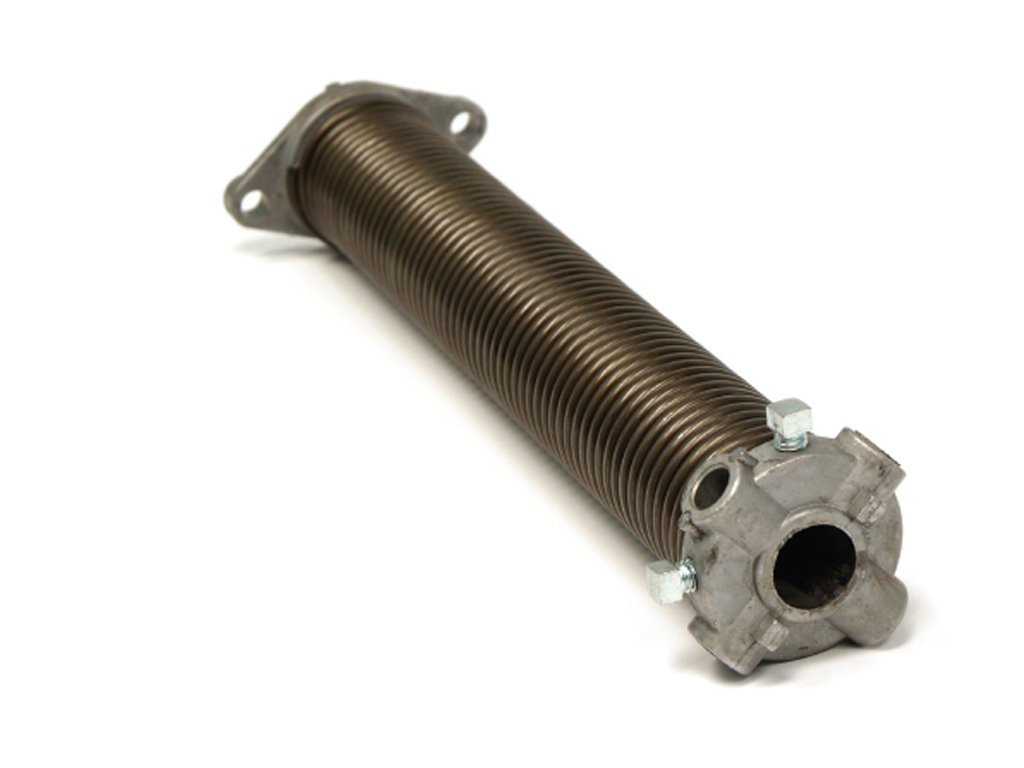Garage Door Torsion Springs

Things You Should Know About Garage Door Torsion Springs
Torsion springs are one of the most important parts of a garage door. Garage doors can't function properly if the torsion springs are broken, damaged, or even rusty. Since they play an important role in opening garage doors, as well as closing it, torsion springs are very important and must be maintained in order for the garage door to work properly, as well.
Garage door torsion springs, unlike the usual springs, are not made of light, steel materials; instead, they are made of heavy steel, making them very physically-demanding to install due to their weight. Garage door torsion springs are also very dangerous to reinstall, especially if the person installing them has never worked with heavy steel before. Needless to say, it is impossible to DIY the replacement of garage door torsion springs.
How do Garage Door Torsion Springs Work?
Torsion springs function a lot like the usual spring with the way they allow doors to open and close by expanding and retracting. They store mechanical energy with the way they rotate or twist. Unlike conditional springs, torsion springs are made of heavier, and denser materials, which also allows them to carry the weight of the garage door.
Torsion springs are mounted on the opening of garage doors; they are often positioned horizontally and above the doors. Whenever the garage door is lifted or opened, the springs unwind and expands in order to lift, or open, the door. The torsion springs make closing the garage door easier too: when you close a garage door, it doesn't drop or close immediately and haphazardly, instead, it takes time as it closes carefully.
When your garage door does not lift or open despite clicking on the open button on your garage door remote, or if it does not close slowly and safely, your garage door torsion springs are probably damaged or have become loose. When this happens, consult with a garage door expert immediately to amend the issue.
Maintaining Your Garage Door Torsion Springs
Repeated opening and closing of your garage door tends to wear out, weaken, and loosen the garage door torsion springs over time. As the garage door also becomes heavier, the torsion springs becomes weaker over time. The torsion springs may also be affected by rust, extreme cold weather, as well as extremely hot weather. On average, torsion springs should last somewhere between 4-6 years, or 10,000 cycles (one opening and closing movement is considered one cycle); however, the constant challenges of the elements may cause unmaintained torsion springs to break sooner.
One way to ensure the longevity of your garage door torsion springs is to maintain it, or to get a garage door expert to check in on it, clean it, and check for damages at least once a year. Keeping rust, damages, and chips at bay is better than buying a new garage door altogether. Garage door torsion springs may still be useful for more than 10,000 cycles if it properly maintained.
Garage door experts can help keep garage door springs in good condition so that they last longer; however, should your garage door torsion springs break, it is important to bear in mind that doing the reinstallation or the fixing yourself could be dangerous. Torsion springs are very physically demanding to fix, and it also takes a lot of skills and the right set of tools to do the job properly. That being said, if you notice any problems with your garage door, contact our garage door experts for a consultation